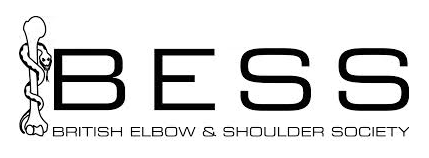Fractures of the arm bone or humerus
The arm bone or humerus can break at any location. This includes at the elbow joint, at any part of the arm, or at the shoulder joint.
Fractures of the humerus can occur by a direct hit to the shoulder or from a fall or collision, where a large force goes up the arm. Fractures of the humerus are more common in people who have osteoporosis or weakness of the bone itself. This is often seen in post-menopausal women or the elderly.
How should you treat a fracture of the arm bone?
There are several different ways that a fracture to the humerus can be treated, and it is totally dependent on two things:
- The type of fracture – Humeral head fractures can be a clean break at the base of the ball, where it meets the shaft, or the whole ball can be broken into several parts.
- Your personal physical requirements – If you are an athlete, your functional demands will be very different to an elderly person who is immobile. Therefore, the degree of intervention in treatment should be tailored specifically to your needs.
How will a broken humerus affect my daily life?
The muscles that move the arm at the shoulder joint (rotator cuff muscles) attach to the head of the humerus. In a humeral head fracture, if the bone fragments are not properly put back in place, the muscles will not work efficiently.
This means you may not be able to move your arm correctly. For example, this may mean that you cannot reach the back of your head to wash your hair or reach around to wipe your bottom. In addition, simple tasks like getting dressed or driving will become restricted and could result in a loss of independence.
Do I need surgery for a broken humerus?
Some humeral fractures can be treated by placing your arm in a sling, but other fractures need surgery.
Surgery often involves a plate with screws. The blood vessels that supply the head of the humerus may become ruptured during the fracture. In these cases, the blood supply to the bone in the head is disrupted, and the bone can die. Even if you try and put a plate on this type of fracture, it will not heal. The bone will eventually die and will collapse.
In worst cases, the screws that have been used to fix the plate will poke through the collapsed bone and can cause painful grating in the joint.
Suppose the fracture has affected the joint surfaces or compromised blood supply. In that case, the better option is to replace the whole humeral head with a metal implant. This is known as a shoulder replacement.
An X-ray is not enough to make this critical decision, and you will need further imaging with a CT scan to look at the fracture more closely.
Contact me to book an appointment. I will be able to let you know if you need more imaging. In addition, I can advise you if a sling and taking rest is the best option for you or if you need surgery to restore the function of your shoulder.
Fractures of the scapula
Fractures of the scapula are relatively rare and account for 3% to 5% of all shoulder fractures. This is because the scapula is protected by the chest and is entirely surrounded by muscles, which cushion it.
This means that injuries to the scapula bone are usually caused by high-energy incidents. Examples include a high-speed car accident or a direct blow to the scapula, such as falling off a horse.
Because the scapula is covered in muscles, the fractures usually heal well without surgery. Still, if the socket of the scapula has been broken, this may require surgery.
If you have broken your scapula, book an appointment to see me. I can organise a CT scan to examine the fracture in 3D to look at all the bone fragments. I can then advise you if you need surgery.
How soon should you have surgery?
The best time to operate is within days of the injury, but you can wait a couple of weeks. It often takes this time to get the correct scans, appropriate implants, and the operating time. And you may need that time to organise your busy life.
So it is better to wait a couple of days and prepare everything adequately instead of rushing things through. If there is a risk of damage to your nerves or major blood vessels, surgery should be organised immediately. Do not wait.
If you have suffered a fracture or any shoulder injury, contact me to book an appointment as soon as possible. Your injury requires specialist care and possibly urgent shoulder surgery.
Full details of surgical shoulder repairs can be found here on my website.
How long does it take to recover from a broken shoulder?
As you can see, there are many things to consider if you have broken your shoulder. But roughly speaking, it takes around 6 weeks for the fracture to heal well enough for you to start using your arm. During this time, the muscles and ligaments around the shoulder will become stiff. You will need a course of physiotherapy to get them moving again.
Patients often ask me, ‘Do I really need to do physiotherapy?’ The answer is yes – if you want to get use of your arm quickly, safely and with less pain.
Here at Your Shoulder, I have the expertise to treat complex surgical cases, including fracture non-union or malunions. These are broken bones that haven’t healed in proper alignment and other traumatic severe shoulder fractures.
Get in touch today if you have an enquiry or would like to book your appointment. We are here to answer any questions that you have.
Ms Susan Alexander is a Consultant Orthopaedic Surgeon and President of the Independent Doctors Federation.
She specialises in all shoulder conditions, including frozen shoulder, rotator cuff tears, dislocations and arthritis. Based in London, she practises at Fortius Clinic and King Edward VII’s Hospital. Ms Alexander is highly experienced in minimally invasive (keyhole) shoulder surgery and is known for her meticulous, patient-centred and holistic approach.
She focuses on accurate diagnosis, bespoke treatment planning, and ongoing support throughout recovery. Learn more about Ms Susan Alexander here.









